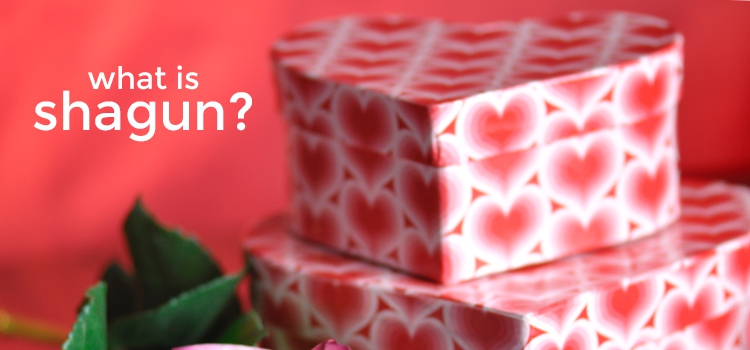What is Shagun?
'Shagun' is an Indian term that comes from the Sanskrit language. It denotes ‘good omen’, ‘auspicious,’ or ‘blessing’. It is also a ceremony that is performed during Hindu marriages. Such ceremonies or rituals have been mentioned in the ancient scriptures of the Hindus, like the Vedas and Upanishads that were written many centuries ago by renowned sages or Rishis. Whenever a major event occurs in a Hindu household, the family members perform some prescribed rituals to invoke the blessings of the gods.
Marriage is one of the major events in life, and there are many ceremonies that take place during a marriage as it is also a very auspicious event. In many communities, the ceremonies are quite elaborate and may go on for three or four days, too. These rituals can be pre-marriage, post-marriage, and during the marriage itself. Shagun is one such ceremony.

The Shagun Ritual
In the old days, when a marriage took place, the bride’s family offered Shagun to the groom and his family during a ceremony called Roka. The latter was usually an unplanned ceremony. As part of the Roka ceremony, the groom’s family gifts a family heirloom like a nose ring or some other piece of jewelry to the bride. This was essentially an unofficial way of announcing the marriage ceremony.
After the bride receives the gift from her prospective in-laws, her family applies a tilak of sindoor on the bridegroom’s forehead. After applying the tilak, the Shagun ceremony takes place. Here, the bride’s family offers expensive gifts like jewelry, fine clothes, sweets, dry fruits, etc. In this manner, they confirm the marriage ceremony. These rituals usually take place two or three weeks before the marriage.
In earlier times, these rituals were not planned in advance but were impromptu in nature. They were also short in duration. But nowadays, many families tend to organize elaborate Roka and Shagun functions. By offering Shagun to the bridegroom’s family, the bride’s family expresses their willingness to go ahead with the marriage ceremony. This pre-marriage ceremony takes place even before the engagement between the couple.
But the practice of offering Shagun is not limited to marriage alone. Hindus offer Shagun during other ceremonies and festivals, too. Often, the guests who take part in such ceremonies also offer Shagun. They do this to share their happiness and also to provide blessings to the couple, and invoke divine blessings.
Why Do People Offer 1 Rupee Coin with Shagun?
When Indians, especially Hindus, offer gifts of money, they include a one rupee coin along with the amount given as a gift. So, if a person is gifting 500 rupees, the envelope will include a one rupee coin along with the 500 rupees. There are many reasons for this practice. Let us see what they are.
The number 1 is indivisible. Adding a 1 rupee coin along with the Shagun signifies permanence. The belief is that it cements the relationship between the giver and the receiver and makes it last for a long time.
The 1 rupee offers hope to the one who receives the Shagun. It suggests that they will continue to get blessings.
Many think that zero is not an auspicious number. So by adding 1 rupee, the amount becomes not 500 or 1000, but 501 or 1001, etc.
Earlier, people would offer gold or silver coins as Shagun. But as these cost a lot now, people offer a 1 rupee metal coin. Metals are obtained from the earth, so it is also a way to show our respect to Goddess Lakshmi.
Those who can afford to do so can gift gold or silver jewelry or fine clothes as Shagun.
The Significance of Shagun
The practice of offering Shagun has some significance.
It is an unofficial announcement of the marriage.
It is a way to bless the couple who are getting married. It symbolizes your prayers for them as they start a new life.
In some communities, it is a debt that has to be repaid. The family that receives the Shagun makes a note of the gifts received and pays in kind when there is a marriage or any other auspicious event in the family which gave the Shagun. It strengthens the bond between the two families and is an unspoken promise that they will meet again.
The things offered as part of the Shagun attract Goddess Lakshmi’s blessings for happiness and prosperity.



















